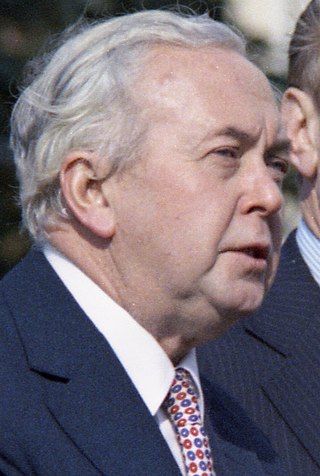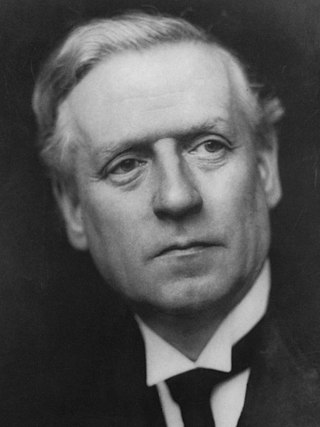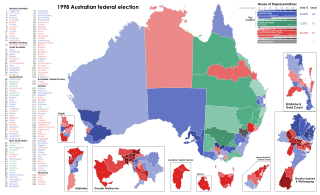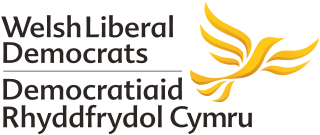Related Research Articles

The 1983 United Kingdom general election was held on Thursday 9 June 1983. It gave the Conservative Party under the leadership of Margaret Thatcher the most decisive election victory since that of the Labour Party in 1945, with a majority of 144 seats and the first of two consecutive landslide victories.

The October 1974 United Kingdom general election took place on Thursday 10 October 1974 to elect 635 members of the House of Commons. It was the second general election held that year; the first year that two general elections were held in the same year since 1910; and the first time that two general elections were held less than a year apart from each other since the 1923 and 1924 elections, which took place 10 months apart.

The 1950 United Kingdom general election was the first to be held after a full term of a majority Labour government. The general election was held on Thursday 23 February 1950, and was also the first to be held following the abolition of plural voting and university constituencies. The government's lead over the Conservative Party shrank dramatically, and Labour was returned to power but with an overall majority significantly reduced from 146 to just 5. There was a 2.8% national swing towards the Conservatives, who gained 90 seats. Labour called another general election the following year, which the Conservative Party won, returning Churchill to government after six years in opposition.

The 1935 United Kingdom general election was held on Thursday 14 November. It resulted in a second landslide victory for the three-party National Government, which was led by Stanley Baldwin of the Conservative Party after the resignation of Ramsay MacDonald due to ill health earlier in the year. It is the most recent British general election to have seen any party or alliance of parties win a majority of the popular vote.

The 1924 United Kingdom general election was held on Wednesday 29 October 1924, as a result of the defeat of the Labour minority government, led by Prime Minister Ramsay MacDonald, in the House of Commons on a motion of no confidence. It was the third general election to be held in less than two years. Parliament was dissolved on 9 October.

The 1923 United Kingdom general election was held on Thursday 6 December 1923. The Conservatives, led by Prime Minister Stanley Baldwin, won the most seats, but Labour, led by Ramsay MacDonald, and H. H. Asquith's reunited Liberal Party gained enough seats to produce a hung parliament. It is the most recent UK general election in which a third party won over 100 seats and the most narrow gap, of a "mere" 100 seats, between the first and third parties since. The Liberals' percentage of the vote, 29.7%, trailed Labour's by only one percentage point and has not been exceeded by a third party at any general election since.

The 1922 United Kingdom general election was held on Wednesday 15 November 1922. It was won by the Conservative Party, led by Prime Minister Andrew Bonar Law, which gained an overall majority over the Labour Party, led by J. R. Clynes, and a divided Liberal Party.

The December 1910 United Kingdom general election was held from 3 to 19 December. It was the last general election to be held over several days and the last to be held before the First World War.

The 1847 United Kingdom general election was conducted between 29 July 1847 and 26 August 1847 and resulted in the Whigs in control of government despite candidates calling themselves Conservatives winning the most seats. The Conservatives were divided between Protectionists, led by Lord Stanley, and a minority of free-trade Tories, known also as Liberal Conservatives or the Peelites for their leader, former prime minister Sir Robert Peel. This left the Whigs, led by Prime Minister Lord John Russell, in a position to continue in government.

The 1998 Australian federal election was held to determine the members of the 39th Parliament of Australia. It was held on 3 October 1998. All 148 seats of the House of Representatives and 40 seats of the 76 seat Senate were up for election. The incumbent centre-right Liberal/National Coalition government led by Prime Minister John Howard of the Liberal Party and coalition partner Tim Fischer of the National Party defeated the centre-left Australian Labor Party opposition led by Opposition Leader Kim Beazley, despite losing the nationwide popular and two-party preferred vote. However, the Australian Labor Party gained seats compared to the previous election.

The 1996 Australian federal election was held to determine the members of the 38th Parliament of Australia. It was held on 2 March 1996. All 148 seats of the House of Representatives and 40 seats of the 76-seat Senate were up for election. The centre-right Liberal/National Coalition led by Opposition Leader John Howard of the Liberal Party and coalition partner Tim Fischer of the National Party defeated the incumbent centre-left Australian Labor Party government led by Prime Minister Paul Keating in a landslide victory. The Coalition won 94 seats in the House of Representatives, which is the largest number of seats held by a federal government to date, and only the second time a party had won over 90 seats at a federal election.

The 1872 Canadian federal election was held from July 20 to October 12, 1872, to elect members of the House of Commons of Canada of the 2nd Parliament of Canada. Prime Minister Sir John A. Macdonald's Conservative Party remained in power, defeating the Liberals. However, the Liberals increased their parliamentary representation considerably, while the Conservative seat count remained static, giving them only six more seats than the Liberals. The election produced the country's first minority government. The support of two independent Conservative MPs functionally gave Macdonald an extremely slim majority that allowed it to survive for two years, until it fell due to scandal.

The 1958 Canadian federal election was held to elect members of the House of Commons of Canada of the 24th Parliament of Canada on March 31, 1958, just nine months after the 23rd election. It transformed Prime Minister John Diefenbaker's minority into the largest majority government in Canadian history and the second-largest percentage of the popular vote. Although the Tories would surpass their 1958 seat total in the 1984 election, the 1958 result remains unmatched both in terms of percentage of seats (78.5%) and the size of the government majority over all opposition parties. Voter turnout was 79.4%.

The 1949 Australian federal elections was held on Saturday December 10, All 121 seats in the House of Representatives and 42 of the 60 seats in the Senate were up for election. The incumbent Labor Party, led by Prime Minister Ben Chifley, was defeated by the opposition Liberal–Country coalition under Robert Menzies in a landslide. Menzies became prime minister for a second time, his first period having ended in 1941. This election marked the end of the 8-year Curtin-Chifley Labor government that had been in power since 1941 and started the 23-year Liberal/Country Coalition government. This was the first time the Liberal party won government at the federal level.

The Welsh Liberal Democrats is a liberal, federalist political party in Wales, part of UK Liberal Democrats. The party is led by Jane Dodds, who has served as an MS for Mid and West Wales since May 2021. The party currently has one elected member in the Senedd and one Welsh seat in the UK House of Commons. It also has several members of the House of Lords. The party had 69 local councillors serving in principal authorities as of the 2022 local authority elections, up 10 from 2017.

The 1974 United States elections were held on November 5. The elections occurred in the wake of the Watergate scandal and three months into the term of Republican President Gerald Ford. Democrats expanded their majorities in both houses of Congress.

The 1872 United States elections were held on November 5, electing the members of the 43rd United States Congress. The election took place during the Third Party System. The election took place during the Reconstruction Era, and many Southerners were barred from voting. Despite a split in the party, the Republicans retained control of the presidency and both houses of Congress.

The 45th Canadian federal election will take place on or before October 20, 2025, to elect members of the House of Commons to the 45th Canadian Parliament. The date of the vote is determined by the fixed-date provisions of the Canada Elections Act, which requires federal elections to be held on the third Monday in October in the fourth calendar year after the polling day of the previous election, though a current government bill proposes to postpone the date to October 27, 2025 to avoid conflicting with Diwali. In addition to the statutory fixed election date provisions, Canada has a constitutional requirement specified in both section 50 of the Constitution Act, 1867 and section 4 of the Canadian Charter of Rights and Freedoms that elections for the House of Commons must be called no more than five years after the writs for the preceding election are returned.
References
- ↑ "By-Elections 1958-1961". Psephos. Archived from the original on 3 August 2008.